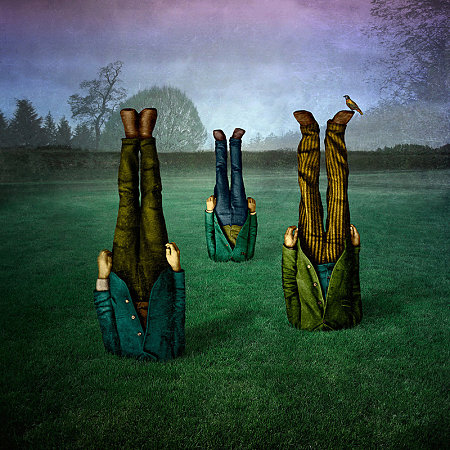
Global Positions
“What’s the big deal about saving the Grand Canyon?” a student once asked, after spending three weeks grappling with the paradox of Edward Abbey’s Desert Solitaire. “There are photos. It’s been filmed,” he went on. “Once you get to see it in HD, in IMAX, once you get to hear the desert in digital surround sound, what’s the point in going there?” It was not his intention to be provocative, and it was his earnestness that stunned me into silence. Other students were silent, too. Uncertain if they were struggling with his premise or the possibilities of my response, I had hoped that they could no more imagine the demise of the Grand Canyon than I could. But they are of a digital generation—one foot planted in the physical world and one in the virtual—and I’m told they are capable of envisioning more than I can imagine.
I still see the stretches of land and the marked and sometimes subtle differences between the desert regions of Texas and Arizona and New Mexico. I wonder why. None of these regions defines me. Not really. Yet they are part of me. Or I am rooted in their reality, their existence. I have lived in Pennsylvania most of my life and have traveled through the mountain tunnels rarely. I have visited parts of the Great Lakes regions of Michigan—Detroit, Lake Michigan, Lake Huron—two or three times in my adult life. Once or twice, I have crossed over into Toronto and Montreal, and a few times into Niagara Falls. I have returned only once to some of the locales of my childhood journey from the west coast to the east, the regions my father insisted that, even as a newborn, I must surely remember—their reality, their existence.
“We should take that trip,” my wife has proposed with enthusiasm.
“Have you seen the route my father laid out?” I asked, incredulous. “Have you ever tried to make sense of it?”
“Are you in a hurry?” she asked. “We can take our time.”
I’m not in a hurry, and in that way I’m much like my father. While he often appeared to rush through his daily life, he was willing to retrace his steps if something caught his attention or a thought suddenly occurred to him. How else can I explain his routes running from Washington to Idaho, from Wyoming to northern California, from Ensenada, Mexico, to Flagstaff, Arizona? It’s enough to drive our GPS to the brink of insanity.
“Are you in a hurry?” I can hear my wife chuckle. Perhaps she recognizes the route as one I might choose myself. She has never accused me of having a keen sense of direction, even in familiar locations.
*
Memories have been implanted in my brain like data in a digital guidance system. They have taken root, a hard wiring that nearly leads me to believe that my memories of Tacoma, Washington, or Carmel, California, are truly my memories. But they’ve also been reinforced by what I’ve seen—in maps and on roadways, at rest stops and national parks—and the stories my father has told me, of permanent snow and giant sequoias, of desert casinos and Spanish missions.
Perhaps there is logic in traveling from Washington State to San Francisco via Idaho. My father thought so, but in many ways he defied logic—a man of contradictions, accepting nothing less than efficiency in one moment and understanding the natural disorder of things in the next. That the direction for both life and travel is not always along a straight line. And as long as he could follow a map, one place eventually led to another. I doubt my GPS would see it that way.
*
“Ever been to Mexico?” my son might ask me.
“I sure have,” I’m bound to reply, confidently. “Tijuana. Ensenada. La Misión. You name it.”
My certainty will have come from stories, photos, and slides. It will also have come from my own memories: those implanted by my father and those imprinted from my true experiences—images that exist and that are real. Memory is a tricky thing, and I wonder about the versions of our family’s history that will be passed down from my son to his children. It is a burden our GPS does not bear, a journey it does not experience.
*
In the morning, we continue our drive north.
“Are we in Virginia?” my wife asks.
I look into the glowing screen of our GPS, following the blue threads through the no man’s land, the no-country, the white space surrounding the child’s drawing, and I shrug.
